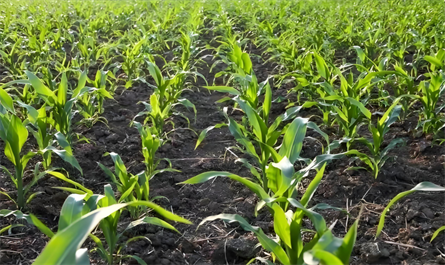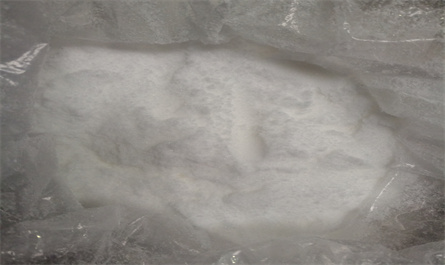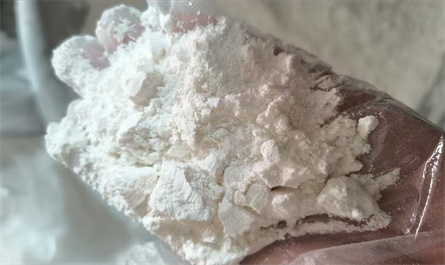Application of common plant hormone
1. Gibberellic Acid (GA3)
Gibberellic Acid, as a broad-spectrum plant growth regulator, plays an important role in vegetable production. It can effectively promote the growth and development of crops, make vegetables mature earlier, thereby increasing yield and improving quality. On vegetables such as spinach and celery, Gibberellic Acid is often sprayed on the leaves to promote their growth and increase yield. In addition, it can also be mixed with 6-BA, Brassinolide, S-abscisic Acid, etc., and sprayed on melons, tomatoes, peppers, cabbage and other plants to further improve yield and quality.
2. Sodium Nitrophenolates (Atonik)
Sodium Nitrophenolates is a powerful cell activator that can quickly penetrate and act on plants after contact with plants. It can promote the flow of cell protoplasm, thereby enhancing cell vitality, and help plant growth and development and the synthesis of nutrients. Due to its broad spectrum, high efficiency, low cost and good safety, sodium nitrophenolates are often used in combination with other plant growth regulators, fertilizers or pesticides. Spraying sodium nitrophenolates on a variety of melon and fruit vegetables can effectively improve yield and quality.
3. Ethephon
Ethephon plays a similar role to ethylene in plants. It can enhance the synthesis of cellular ribonucleic acid, thereby promoting protein synthesis. Although Ethephon has many registered products, its single agent has only been registered on tomatoes in the field of vegetables, mainly used to promote fruit ripening. In addition, the compound preparation of Ethephon and Naphthyl Acetic Acid has been registered on ginger, aiming to regulate the growth of ginger.

4. Brassinolide (BRs)
Since the discovery of the biological activity of brassinolide in 1941, scientists have isolated and identified more than 40 similar compounds from plants. At present, in the field of vegetables, brassinolide and its derivatives have been registered on crops such as cucumbers, watermelons, tomatoes, peppers and cabbages. They can not only effectively promote the growth and fruiting of vegetables, melons, fruits and other crops, but also significantly improve the quality, increase yield, and enhance the stress resistance of crops.
5. Forchlorfenuron
Forchlorfenuron, a phenylurea plant growth regulator, can effectively promote the growth of melon vegetables, increase the fruit setting rate, and enhance the fruit quality. In the field of melon vegetables, the application of Forchlorfenuron alone is particularly significant. It can significantly increase the fruit setting rate, increase yield and optimize the shape of melons. In addition, Thidiazuron (TDZ), which has similar functions to Forchlorfenuron, has been registered for use in crops such as cucumbers, melons and tomatoes.
6. S-abscisic Acid (S-ABA)
S-abscisic Acid, once known as natural abscisic acid, plays an important role in plant growth balance and stress resistance induction. It not only promotes the balanced absorption of water and nutrients by plants, but also coordinates metabolic activities in the body. At present, the types of vegetables registered for S-abscisic Acid alone and its combination are limited, mainly concentrated in crops such as tomatoes.
7. Diethyl aminoethyl hexanoate (DA-6)
DA-6 can activate peroxidase and nitrate reductase in plants, thereby increasing the content of chlorophyll, protein and nucleic acid, and accelerating photosynthesis. The use of DA-6 can significantly shorten the maturity period of crops, while increasing yield and optimizing quality. Currently, DA-6 single agent and its compound agent have been registered on vegetables such as cabbage and tomatoes.

8.1-Naphthyl Acetic Acid (NAA)
Naphthyl Acetic Acid, a plant growth regulator, has shown significant effects in promoting plant root growth. For this reason, it is widely used in many fields such as promoting plant root development, increasing fruit setting rate and preventing pre-harvest fruit drop.
9. Choline chloride
Choline chloride can increase the germination rate of crop seeds, promote rooting, help form strong seedlings, thereby increasing yield and improving quality. Currently, the registered applications of Choline chloride on vegetables mainly include potatoes, garlic, onions, ginger and yam.

#GibberellicAcid #GA3 #SodiumNitrophenolates #Forchlorfenuron #Brassinolide #SABA #Sabscisic Acid #DA6 #Cholinechloride #NaphthylAcetic Acid #Farming #Fertilizer #organicchemicals #Pesticides #Fungicides #Herbicides #Agrochemicals #Biostimulants #planthormone #plantgrowthregulator #PGR #Plantation #plantprotection
Summary and Outlook
Although plant growth regulators are included in the category of pesticides for management, they are fundamentally different from traditional pesticides used for disease control, pest control and weed control. Plant growth regulators mainly achieve their multiple goals by regulating key processes such as cell division and elongation, differentiation of tissues and organs, seed dormancy and germination, flowering and fruiting, maturity and aging. With the continuous deepening of research and application of plant growth regulator products, the status of this regulator in agricultural production will become increasingly important. In the future, the integrated application of medicine, water, fertilizer and plant growth regulators is expected to become the new normal for plant health management, providing all-round and three-dimensional protection for plants.
Gibberellic Acid, as a broad-spectrum plant growth regulator, plays an important role in vegetable production. It can effectively promote the growth and development of crops, make vegetables mature earlier, thereby increasing yield and improving quality. On vegetables such as spinach and celery, Gibberellic Acid is often sprayed on the leaves to promote their growth and increase yield. In addition, it can also be mixed with 6-BA, Brassinolide, S-abscisic Acid, etc., and sprayed on melons, tomatoes, peppers, cabbage and other plants to further improve yield and quality.
2. Sodium Nitrophenolates (Atonik)
Sodium Nitrophenolates is a powerful cell activator that can quickly penetrate and act on plants after contact with plants. It can promote the flow of cell protoplasm, thereby enhancing cell vitality, and help plant growth and development and the synthesis of nutrients. Due to its broad spectrum, high efficiency, low cost and good safety, sodium nitrophenolates are often used in combination with other plant growth regulators, fertilizers or pesticides. Spraying sodium nitrophenolates on a variety of melon and fruit vegetables can effectively improve yield and quality.
3. Ethephon
Ethephon plays a similar role to ethylene in plants. It can enhance the synthesis of cellular ribonucleic acid, thereby promoting protein synthesis. Although Ethephon has many registered products, its single agent has only been registered on tomatoes in the field of vegetables, mainly used to promote fruit ripening. In addition, the compound preparation of Ethephon and Naphthyl Acetic Acid has been registered on ginger, aiming to regulate the growth of ginger.

4. Brassinolide (BRs)
Since the discovery of the biological activity of brassinolide in 1941, scientists have isolated and identified more than 40 similar compounds from plants. At present, in the field of vegetables, brassinolide and its derivatives have been registered on crops such as cucumbers, watermelons, tomatoes, peppers and cabbages. They can not only effectively promote the growth and fruiting of vegetables, melons, fruits and other crops, but also significantly improve the quality, increase yield, and enhance the stress resistance of crops.
5. Forchlorfenuron
Forchlorfenuron, a phenylurea plant growth regulator, can effectively promote the growth of melon vegetables, increase the fruit setting rate, and enhance the fruit quality. In the field of melon vegetables, the application of Forchlorfenuron alone is particularly significant. It can significantly increase the fruit setting rate, increase yield and optimize the shape of melons. In addition, Thidiazuron (TDZ), which has similar functions to Forchlorfenuron, has been registered for use in crops such as cucumbers, melons and tomatoes.
6. S-abscisic Acid (S-ABA)
S-abscisic Acid, once known as natural abscisic acid, plays an important role in plant growth balance and stress resistance induction. It not only promotes the balanced absorption of water and nutrients by plants, but also coordinates metabolic activities in the body. At present, the types of vegetables registered for S-abscisic Acid alone and its combination are limited, mainly concentrated in crops such as tomatoes.
7. Diethyl aminoethyl hexanoate (DA-6)
DA-6 can activate peroxidase and nitrate reductase in plants, thereby increasing the content of chlorophyll, protein and nucleic acid, and accelerating photosynthesis. The use of DA-6 can significantly shorten the maturity period of crops, while increasing yield and optimizing quality. Currently, DA-6 single agent and its compound agent have been registered on vegetables such as cabbage and tomatoes.

8.1-Naphthyl Acetic Acid (NAA)
Naphthyl Acetic Acid, a plant growth regulator, has shown significant effects in promoting plant root growth. For this reason, it is widely used in many fields such as promoting plant root development, increasing fruit setting rate and preventing pre-harvest fruit drop.
9. Choline chloride
Choline chloride can increase the germination rate of crop seeds, promote rooting, help form strong seedlings, thereby increasing yield and improving quality. Currently, the registered applications of Choline chloride on vegetables mainly include potatoes, garlic, onions, ginger and yam.

#GibberellicAcid #GA3 #SodiumNitrophenolates #Forchlorfenuron #Brassinolide #SABA #Sabscisic Acid #DA6 #Cholinechloride #NaphthylAcetic Acid #Farming #Fertilizer #organicchemicals #Pesticides #Fungicides #Herbicides #Agrochemicals #Biostimulants #planthormone #plantgrowthregulator #PGR #Plantation #plantprotection
Summary and Outlook
Although plant growth regulators are included in the category of pesticides for management, they are fundamentally different from traditional pesticides used for disease control, pest control and weed control. Plant growth regulators mainly achieve their multiple goals by regulating key processes such as cell division and elongation, differentiation of tissues and organs, seed dormancy and germination, flowering and fruiting, maturity and aging. With the continuous deepening of research and application of plant growth regulator products, the status of this regulator in agricultural production will become increasingly important. In the future, the integrated application of medicine, water, fertilizer and plant growth regulators is expected to become the new normal for plant health management, providing all-round and three-dimensional protection for plants.
RECENT POSTS
Featured News



